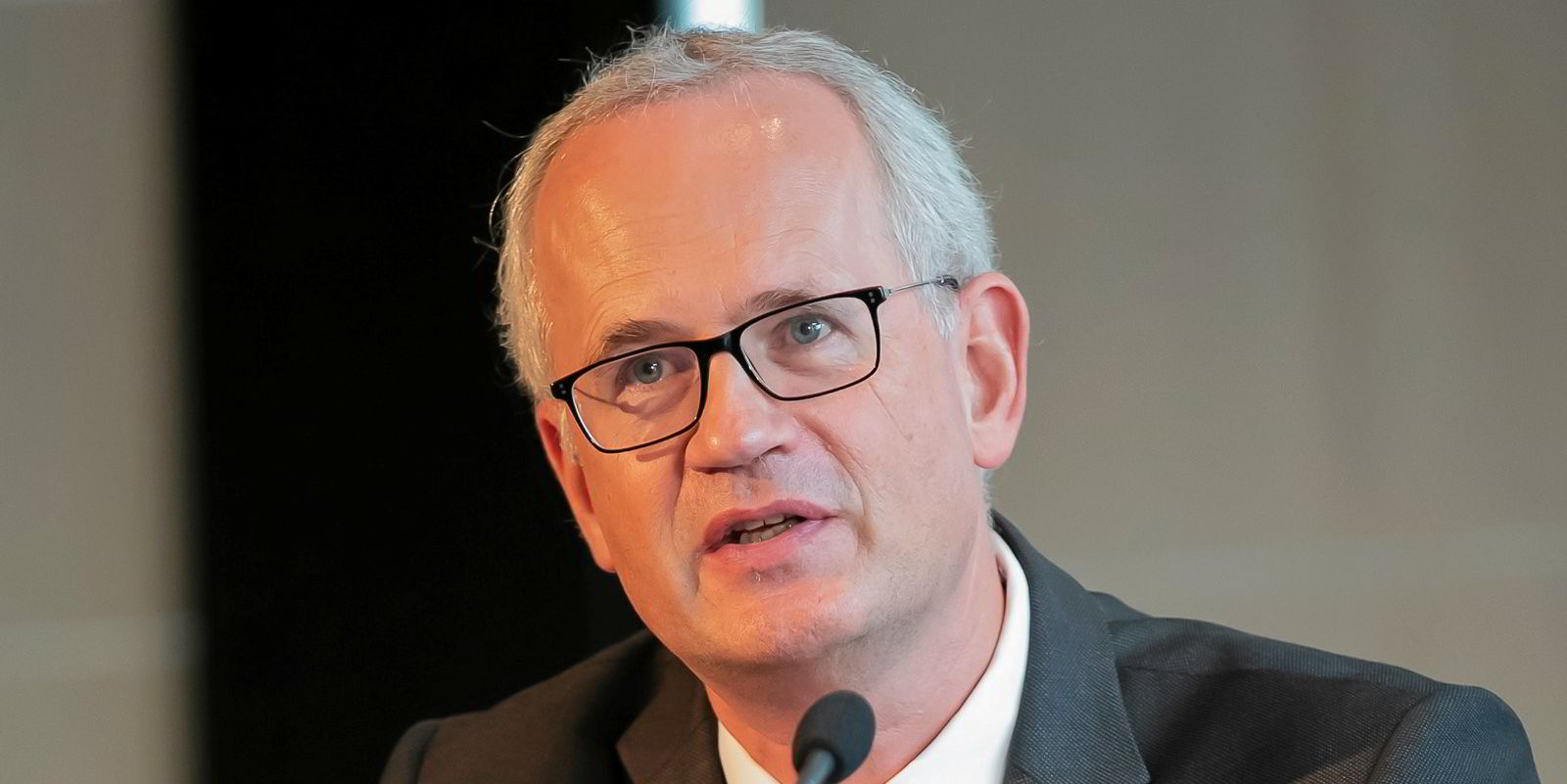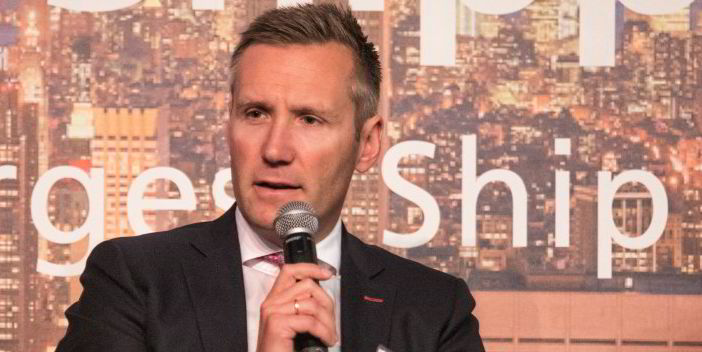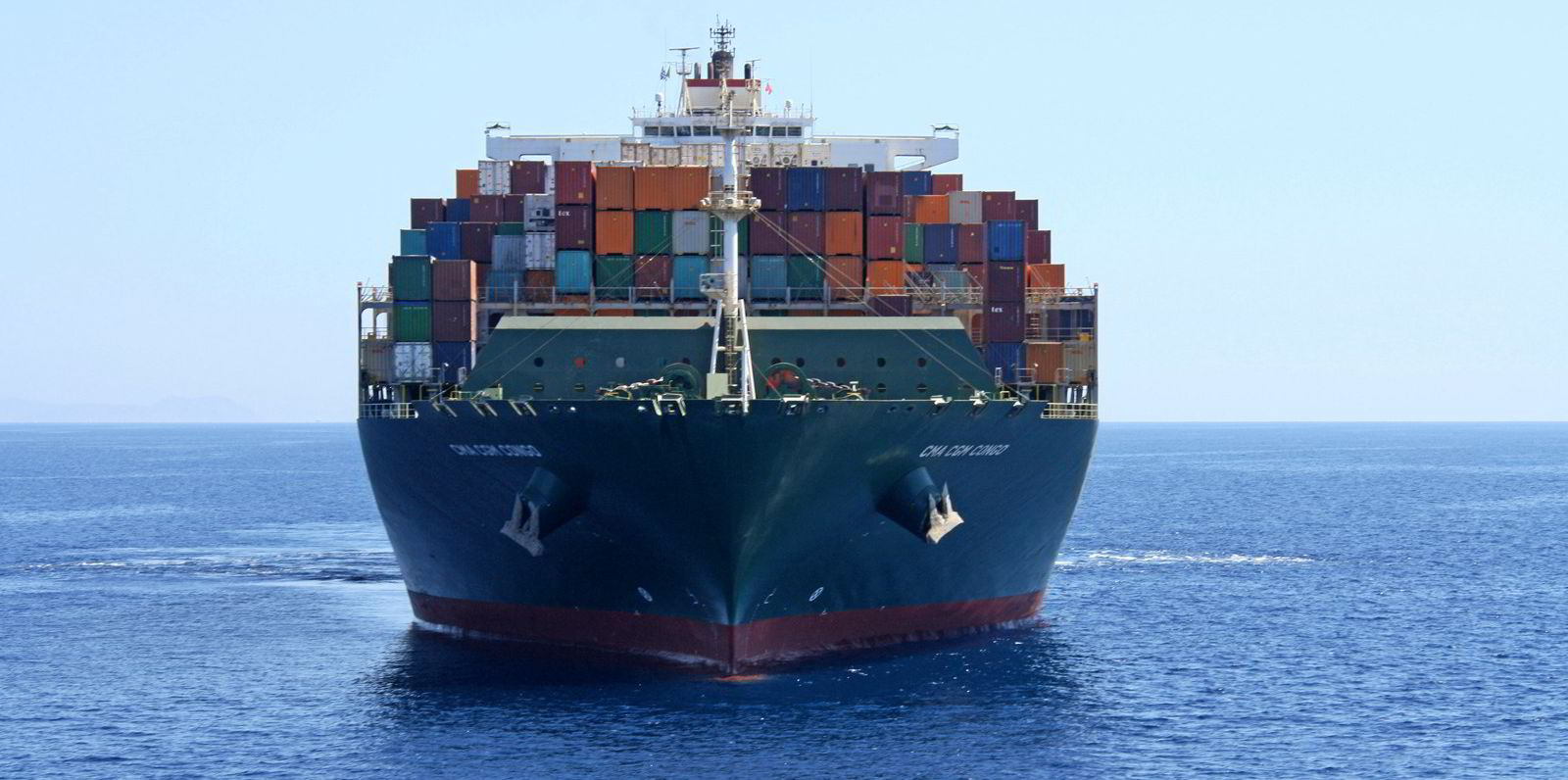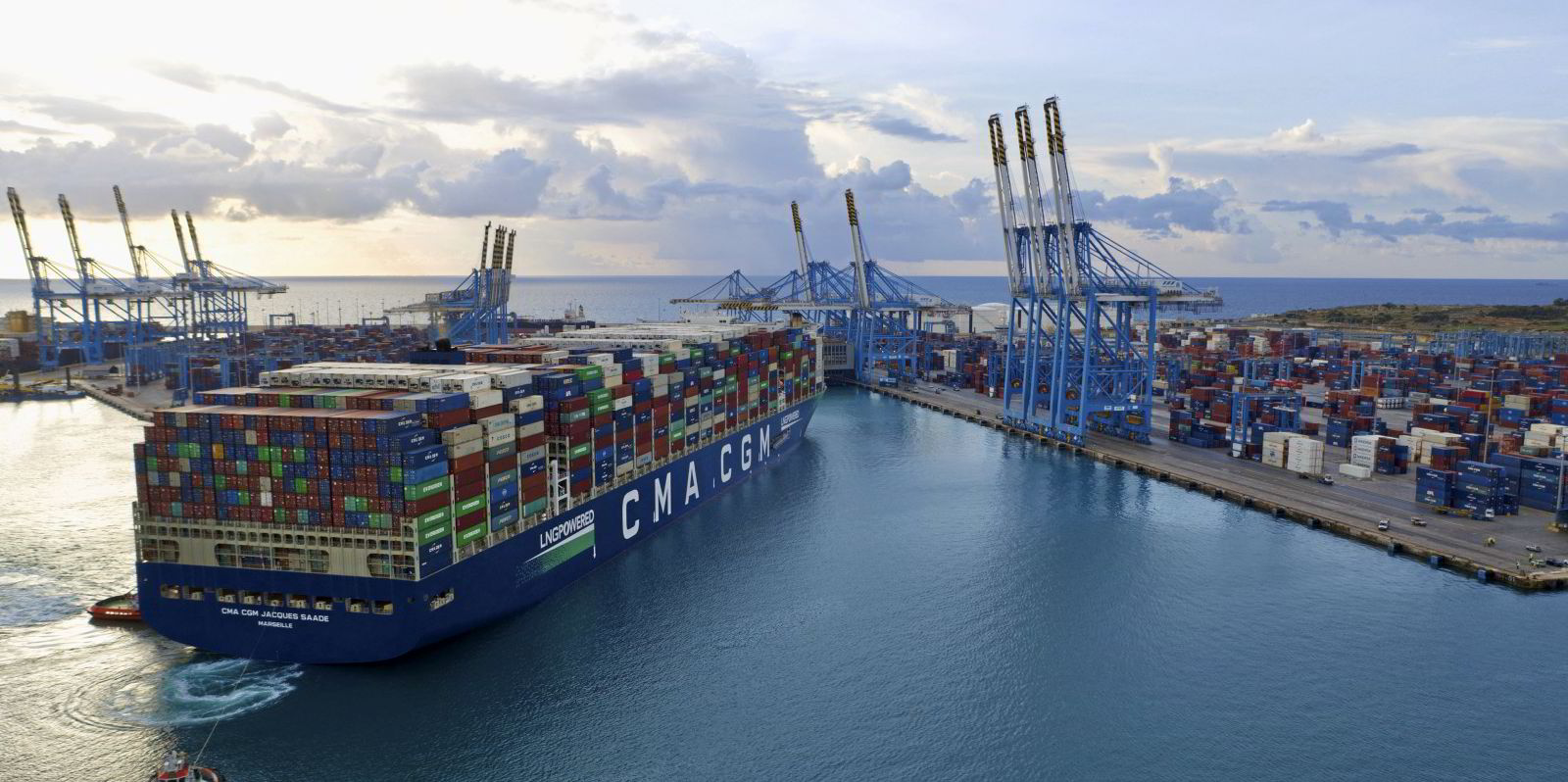Leading small boxship owner Leonhardt & Blumberg (L&B) has successfully used the container shipping boom to diversify into the clean tanker sector.
But the company and other German owners are seeking greater regulatory clarity before making their next investments.
The Hamburg-based company sold a handful of container feeder vessels earlier this year when the market was booming.
That helped L&B to make a move into new markets with the acquisition of five MR product tankers.
“The issue is really what next?” managing director Torben Kolln told TradeWinds.
His company is pondering options at a time when environmental rules in Europe and at an international level remain unclear on key issues, such as the European Union Emissions Trading System (EU ETS) and Carbon Intensity Indicator (CII).
“There is a lot of uncertainty still,” Offen Group chief executive Arnt Vespermann said.
“With CII we know the rules, but don’t know how this will work in the partnership between the owners and liners.”
Lack of clarity
Vespermann, who heads Germany’s largest boxship tonnage provider with around 50 ships, is surprised there is still no clarity on what the EU ETS might look like.
“Looking at the investments and the assets we have, its amazing we have uncertainty still at this pretty late stage,” Vespermann told a recent Capital Link forum in Hamburg.
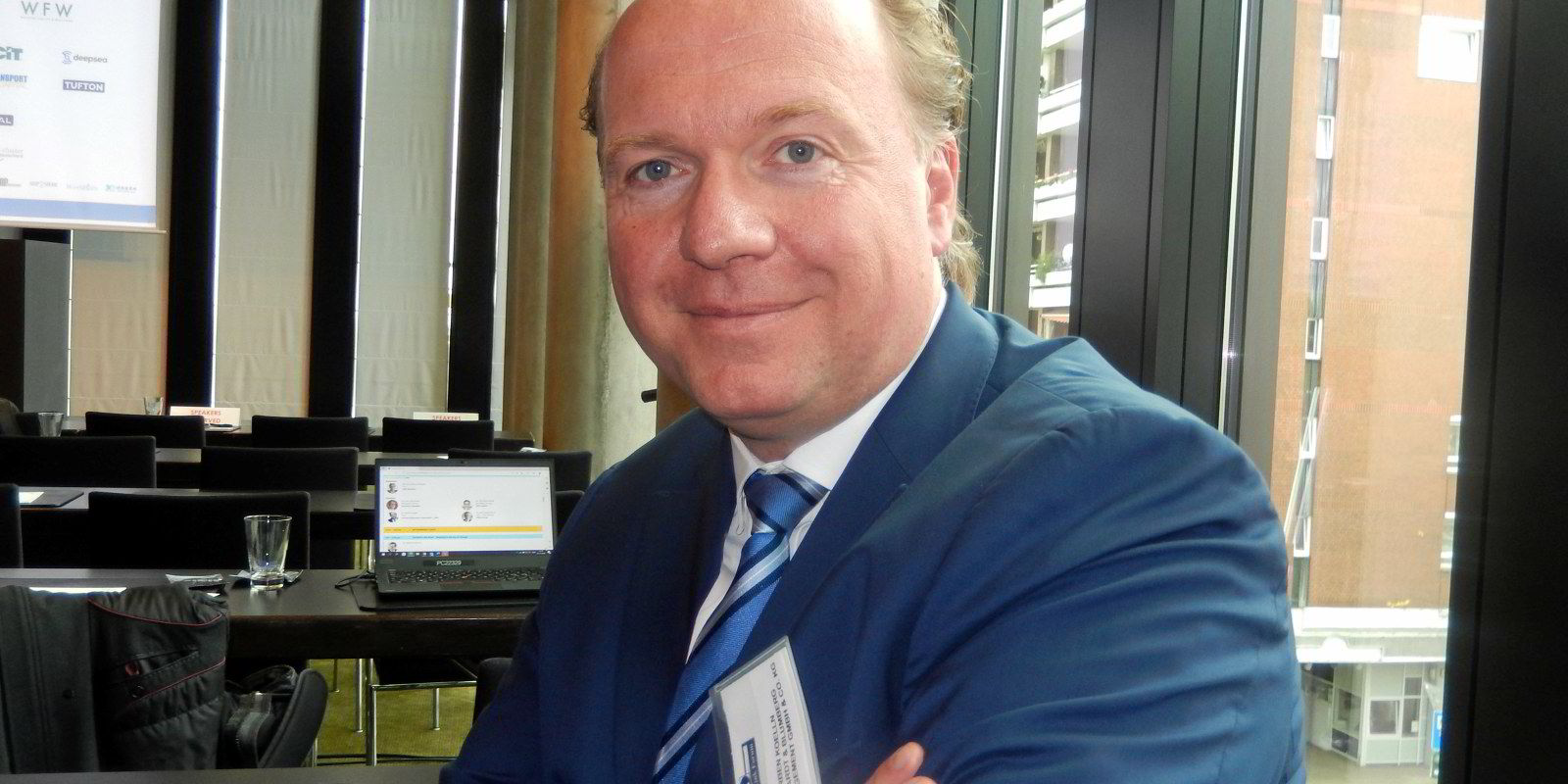
That does not mean German owners are sitting on their hands: L&B has already this year overseen 10 sale-and-purchase transactions.
Once the world’s largest provider of 1,700-teu vessels, the company has concluded the sale of five container vessels.
That proved well-timed given the steep fall of the small boxship market.
Six to 12-month rates for 1,700-teu vessels are nearly 70% down year on year, according to the New ConTex index.
Secondhand values are following in their wake, with a 10-year-old, 1,700-teu feeder worth 45% less over the year.
Vessels in this category are worth $17m, compared to $31m at the end of last year, according to Clarksons Research.
The next crisis
Having sold the boxships, L&B moved into a new market with the purchase of five MR2 product tankers this year.
The move reflects a survival strategy that saw the company merge with fellow Hamburg owner Buss Shipping in 2017. That enabled the organisation to survive the crisis years prior to the recent container boom.
Believing that “the next container shipping crisis will come”, Kolln has sought to develop “at least a second-leg” on which L&B could stand.
“It was too late for dry bulk,” he said. “That train had left the station in the second half of 2021, and so we started looking into product tankers.”
That resulted in L&B purchasing three MR product tankers from Ardmore Shipping in May in a $40m sale-and-leaseback deal.
A month later, two more — the 51,300-dwt Cygnus and Sextans (both built 2007) — were acquired en bloc for $30m from Third Eye Capital of Canada.
L&B remains with a fleet of 36 vessels, the same as when it began the year.
What’s another year?
But regulatory uncertainty appears to have put the brakes on further investment.
The owner does not want to make premature investments that leave owners at a disadvantage. However, Kolln said owners will immediately adopt them if clear regulations are put in place.
“I don’t understand why it’s so difficult to introduce ETS in Europe,” he said. “Why it takes another year?”
L&B is in a position to wait, with most of its container fleet fixed on long-term charters. Many fixtures concluded in 2021 mean most vessels are covered for the remainder of this year and next. Some of the charters run through to 2024 and 2025.
“It’s a good fleet, and we’re looking at how we can upgrade them and make them green,” Kolln said.
“But we need to have the regulations in force that when we take the decision, we get the benefit out of it.”
Whatever regulators in Europe decide on ship operations, ship efficiency or carbon pricing, it is important to get it right, argues Martin Kroger, chief executive of the German Shipowners’ Association.
Kroger said all eyes will be on the European decision so that international lessons can be learned.
